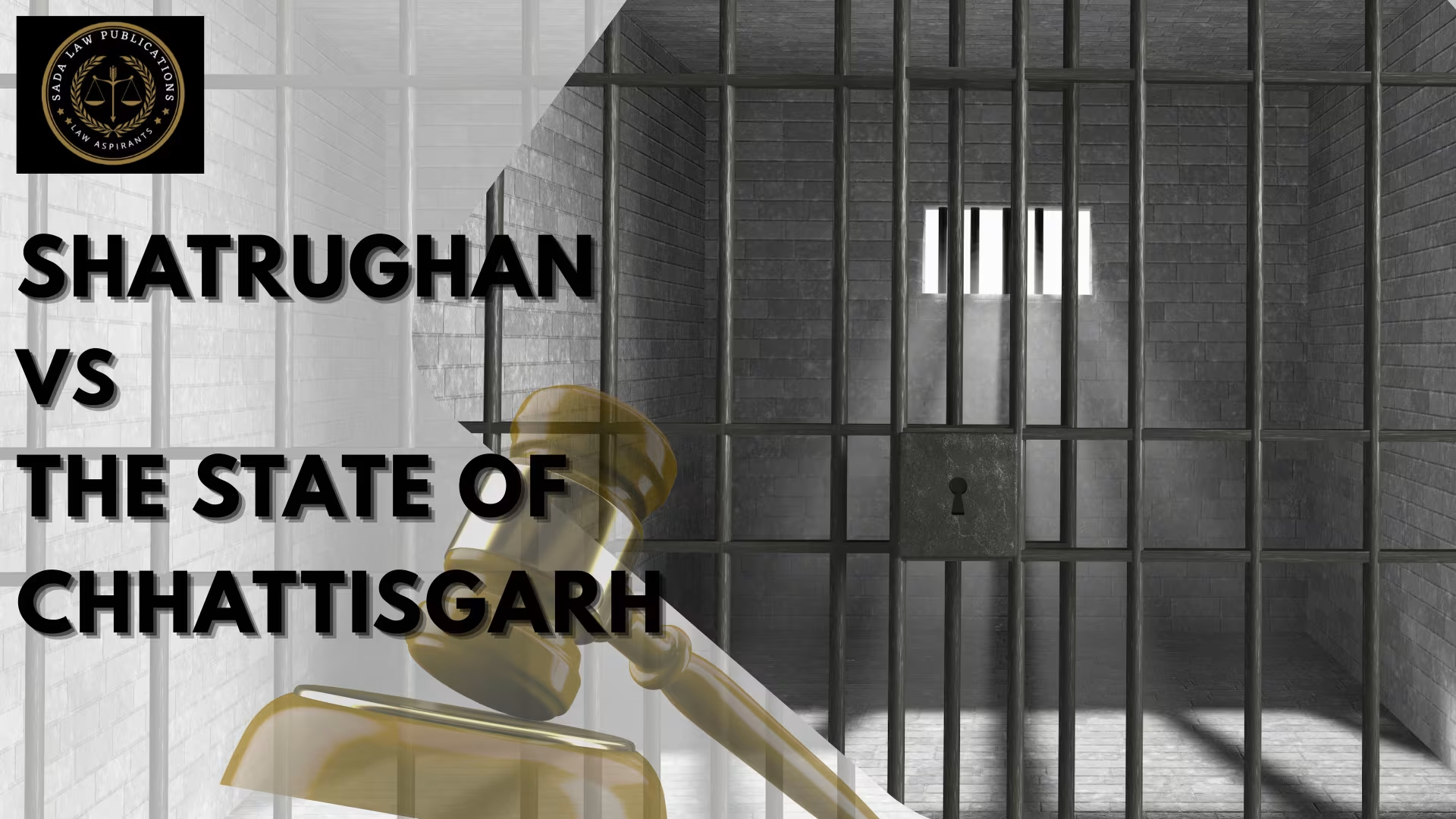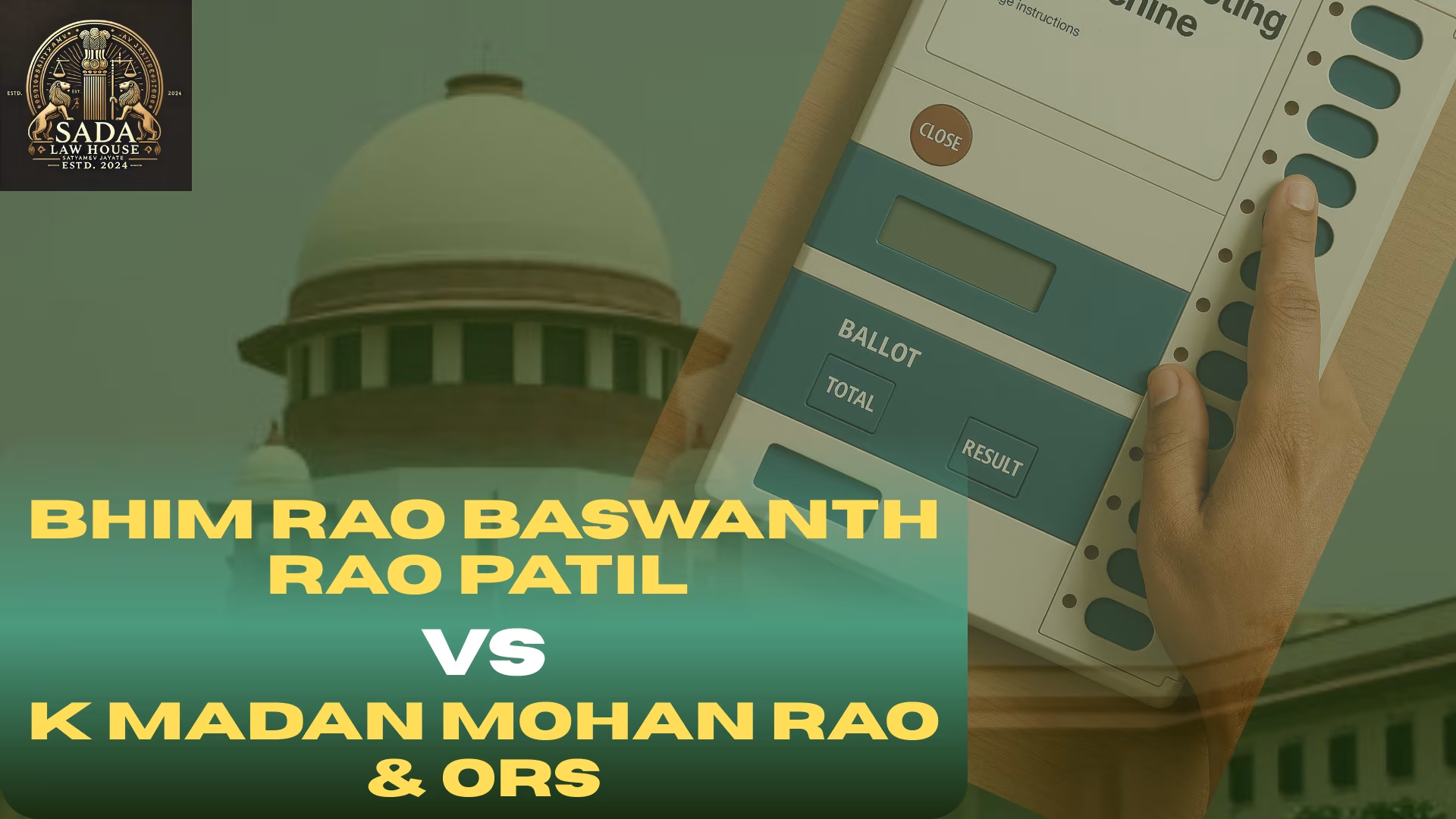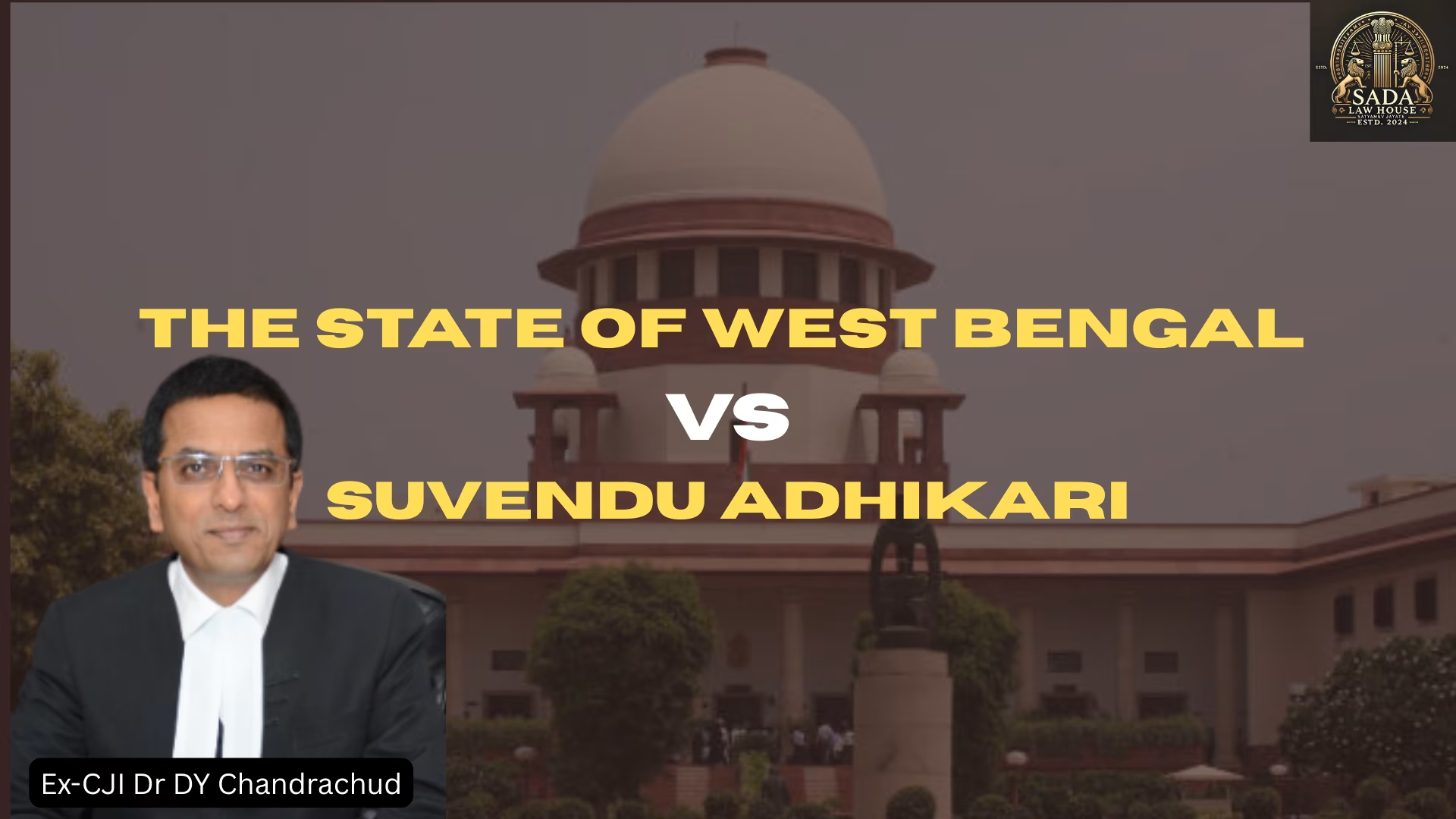Trending Today
Shatrughan v. The State of Chhattisgarh – Acquittal on Grounds of Weak Circumstantial Evidence
Maintainability of an Election Petition and the Need for Substantive Material Facts under the Representation of the People Act, 1951
Supreme Court Upholds NIA Probe in West Bengal Ram Navami Violence Cases
Determination of Ownership Rights in Adverse Possession: Gostho Behari Das v. Dipak Kumar Sanyal & Ors. (2023)
Supreme Court Grants Bail to Teesta Setalvad: A Reaffirmation of Bail Jurisprudence
LEGAL INTERNSHIP OPPORTUNITY AT MANDLA AND SINGH LAW CHAMBERS
High Courts in India Navigate Justice, Politics, and Social Equity
Rajasthan High Court Dismisses Plea Against PM Modi and Amit Shah Over CAA
India Must Adopt Integrated Strategy to Become Global Arbitration Hub: Jimmy Yim
Delhi HC Orders Removal of Social Media Posts on BJP Leader Gaurav Bhatia’s TV Appearance
Shatrughan v. The State of Chhattisgarh – Acquittal on Grounds of Weak Circumstantial Evidence
- Nisha Kumari
- Sep 29, 2025

Introduction
This case concerns the conviction of Shatrughan for the alleged murder of Jagat Ram in Village Lolesara, District Bemetara, Chhattisgarh. The conviction under Section 302 of the IPC was based solely on circumstantial evidence and conflicting witness testimonies, without any direct proof or clear motive. Both the Trial Court and the Chhattisgarh High Court upheld his conviction and sentenced him to life imprisonment. On appeal, the Supreme Court examined whether the conviction was sustainable in law when based on a fragile evidentiary foundation.
Facts of the Case
-
Jagat Ram was found with a deep neck wound and later succumbed to injuries.
-
Prosecution alleged Shatrughan attacked him with a tabbal (chopper).
-
PW-1 claimed to have seen Shatrughan fleeing with a weapon but did not witness the assault.
-
Other witnesses (PW-2, PW-3, PW-4, PW-14) provided only hearsay accounts.
-
Medical evidence confirmed a single fatal neck injury but failed to conclusively link it to the recovered weapon.
-
The motive was unclear, and allegations of possible false implication by local authorities (including the Sarpanch) surfaced.
-
Despite these weaknesses, both the Trial Court and High Court convicted Shatrughan under Section 302 IPC.
Issue of the Case
Whether a conviction under Section 302 IPC can be sustained solely on circumstantial evidence when:
-
there is no direct eyewitness testimony,
-
the alleged motive is unclear, and
-
witness accounts are inconsistent and unreliable?
Judgment
The Supreme Court (Justices Vikram Nath and Ahsanuddin Amanullah) delivered its judgment on 20 July 2023 ([2023] INSC 630):
-
Absence of Direct Evidence – No eyewitness saw the actual assault.
-
Unreliable Testimonies – PW-1’s account was inconsistent; other witnesses’ statements were hearsay.
-
Incomplete Chain of Circumstances – The Court held that the chain of circumstantial evidence was broken and inconclusive.
-
Lack of Motive – The prosecution failed to establish why the accused would commit the murder.
-
Forensic Gaps – The medical and forensic reports did not conclusively link the weapon to the injury.
-
Possibility of False Implication – Local political influence raised doubts about the objectivity of the prosecution.
-
Outcome – The conviction was set aside; Shatrughan was acquitted and ordered to be released forthwith.
Conclusion
The Supreme Court reaffirmed that in cases based on circumstantial evidence, the chain of circumstances must be complete and point unerringly to the guilt of the accused. In this case, the prosecution failed to prove guilt beyond reasonable doubt due to unreliable witness testimony, lack of motive, and incomplete evidentiary links. The acquittal underscores the principle that suspicion, however strong, cannot replace proof in criminal law.
Leave a Reply
Case Laws

Shatrughan v. The State of Chhattisgarh – Acquittal on Grounds of Weak Circumstantial Evidence
Sada Law
•
September 29, 2025
•
Case law
•
No Comments

Maintainability of an Election Petition and the Need for Substantive Material Facts under the Representation of the People Act, 1951
Sada Law
•
September 29, 2025
•
Case law
•
No Comments

Supreme Court Upholds NIA Probe in West Bengal Ram Navami Violence Cases
Sada Law
•
September 29, 2025
•
Case law
•
No Comments



